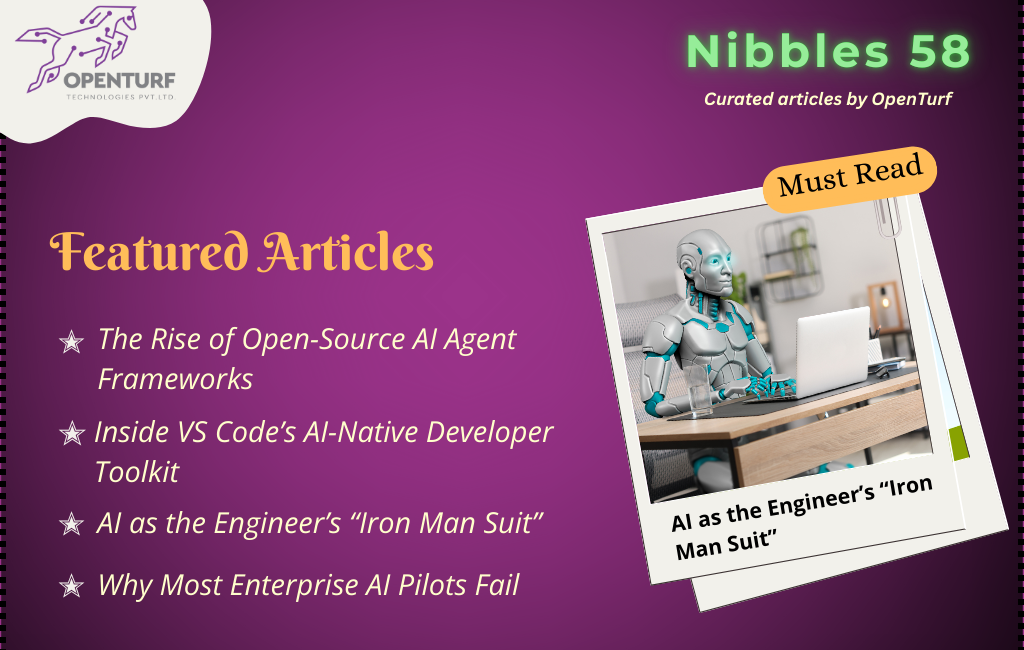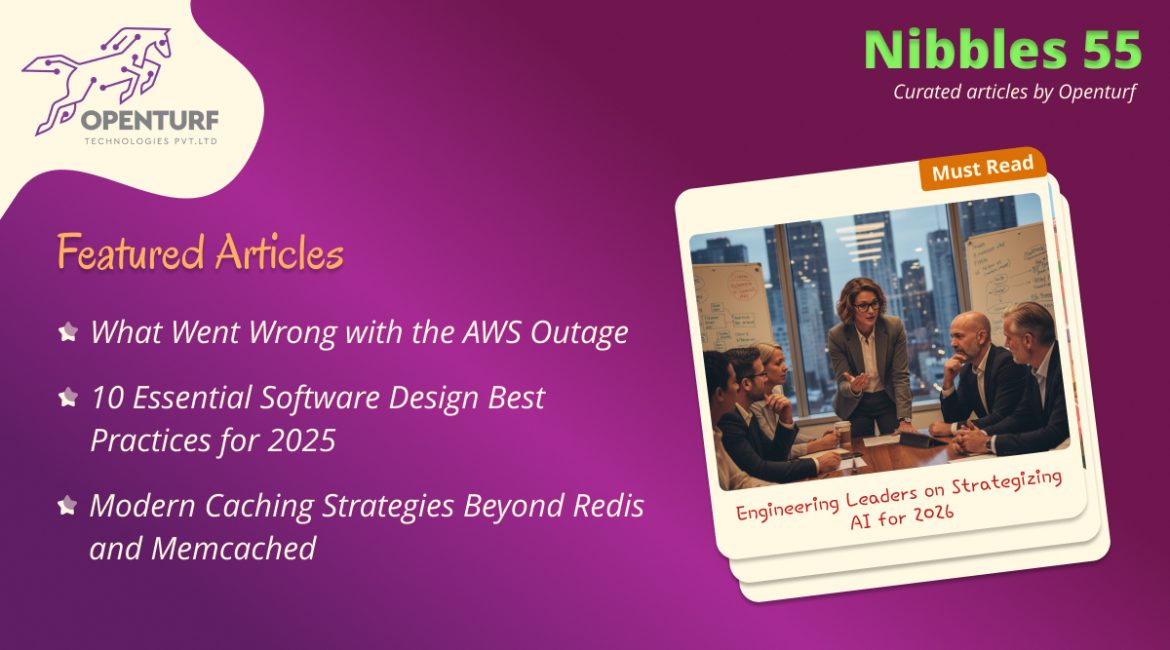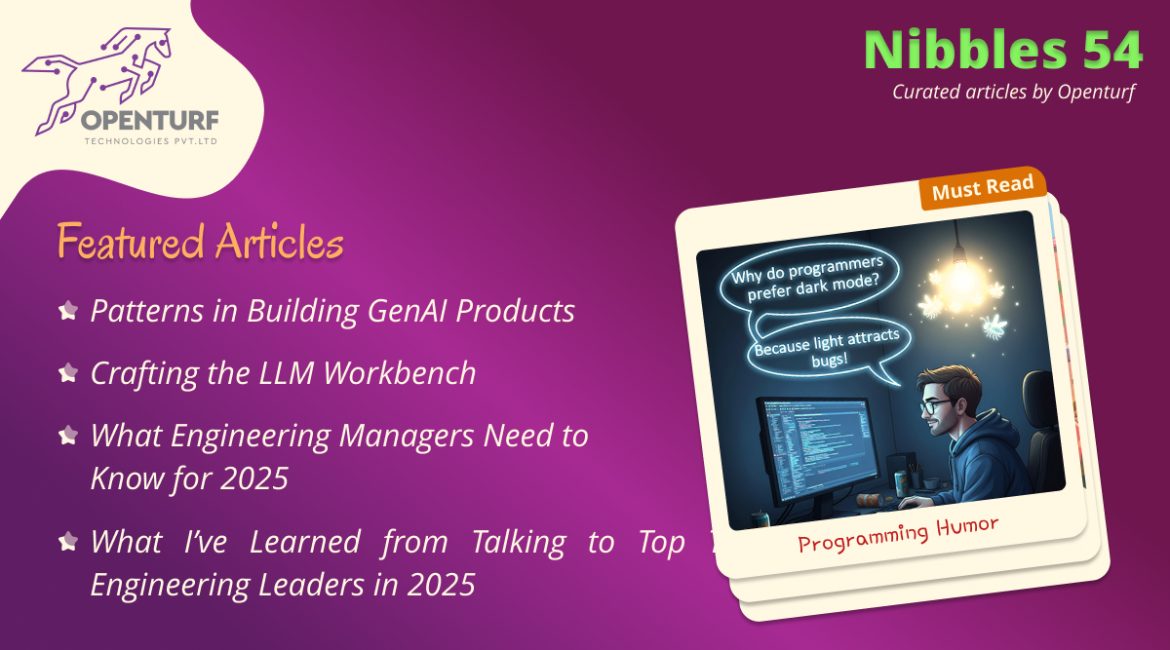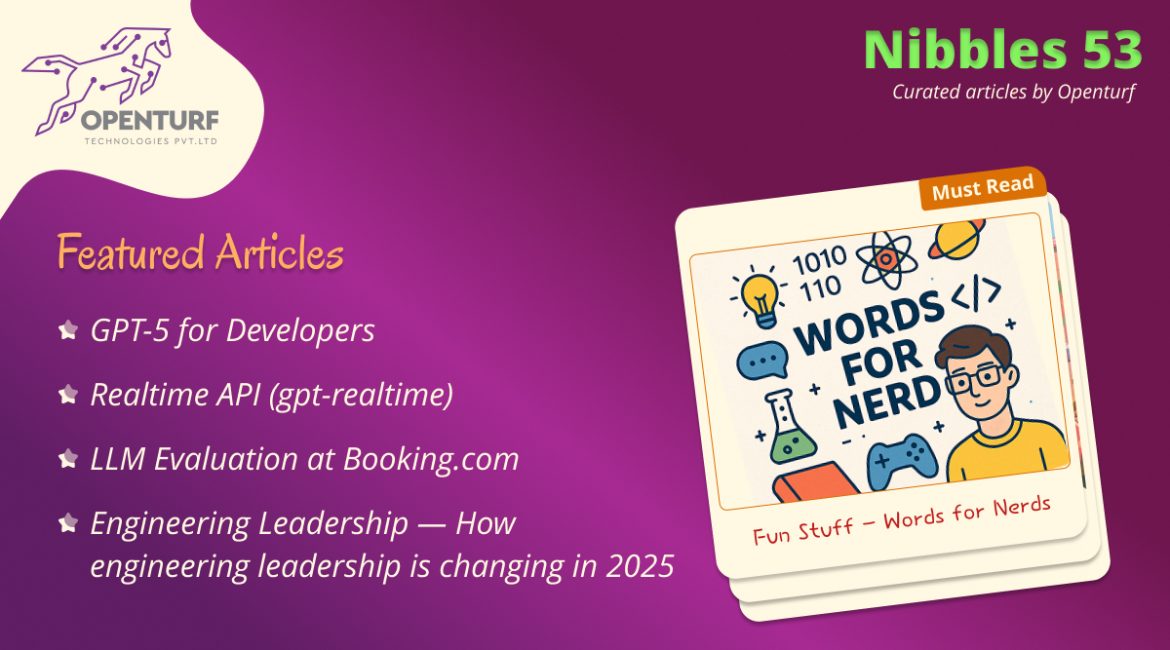MoltBot is rapidly becoming one of the most interesting open-source frameworks for building production-grade agent systems. It supports tool-calling, memory modules, safety hooks, and multi-step reasoning out of the box — making it easier to move from prototype to reliable automation. A strong indicator of where agent frameworks are heading...
Best of Nibbles 2025
A Curated Collection of Articles That Will Stand the Test of Time Every month, Nibbles attempts something simple and deceptively hard:to curate articles that are worth your time. Not trending.Not loud.Not driven by the algorithm of the week. As the year comes to a close, we found ourselves asking a...
Inside GitHub’s New Code Search Engine
GitHub has rolled out major improvements to its search backend — rewritten in Rust with Zing indices and near-instant streaming search across massive repos. This upgrade dramatically improves cross-repo discovery, regex support, and monorepo developer experience. Read more: https://github.blog/engineering/architecture-optimization/the-technology-behind-githubs-new-code-search/ What is the future of platform engineering? Focus on the ‘Why’...
What Went Wrong with the AWS Outage
The massive outage in Amazon Web Services’ US-EAST-1 region was traced to a race condition in the DNS automation of the DynamoDB service. An empty DNS record and automation failures propagated across multiple AWS services, disrupting dozens of major websites and apps. Read more: Network World article Engineering Leaders on...
GenAI for Hyper-Personalization: The End of Generic Customer Experience
The era of one-size-fits-all customer engagement is no more. In a world saturated with information and choices, customers no longer just expect personalization; they demand hyper-personalization, experiences so finely tuned to their individual needs and preferences that they feel uniquely understood. For years, this was a marketer's dream, largely unattainable...
What I’ve Learned from Talking to Top Engineering Leaders in 2025
Engineering execs share insights on AI adoption, scaling distributed teams, and the tradeoffs of speed vs stability. If you want to read more, click here. What Engineering Managers Need to Know for 2025 Shifting expectations for managers: agentic systems, memory-aware AI tools, and new skills for team leadership.If you want...
The Rise of Retrieval-Augmented Generation (RAG): Bridging Creativity with Accuracy
Generative AI is powerful, but it has one big flaw: it often makes things up. Known as “hallucinations,” these inaccuracies limit trust when deploying AI in critical business scenarios. Retrieval-Augmented Generation (RAG) has emerged as the answer, combining the creativity of generative models with the reliability of real-time data retrieval....
The Ethics of Synthetic Data: A New Frontier for AI Training
The digital universe is expanding at an unimaginable pace, spewing forth petabytes of real-world data every second. Yet, paradoxically, for many cutting-edge AI applications, real data is often the biggest bottleneck. It's too sensitive, too scarce, too biased, or simply too expensive to acquire. Synthetic data – artificially generated data...
GPT-5 for Developers —
OpenAI’s newest API models (gpt-5, mini, nano) focus on stronger coding and agentic tool-use with clear migration notes.Read more: https://openai.com/index/introducing-gpt-5-for-developers/OpenAI Realtime API (gpt-realtime) GA launch adds better speech-to-speech, SIP calling, image inputs, and remote MCP servers for production voice agents.Read more: https://openai.com/index/introducing-gpt-realtime/OpenAI LLM Evaluation at Booking.com A practical playbook: strong-model...
Performance Engineering for Cloud Cost Optimization: Tuning for Efficiency, Not Just Speed
The cloud promised agility and infinite scale, and it delivered. But for many organizations, that promise has come with a hidden tax: a growing, often-uncontrolled mountain of cloud costs. The race to deploy applications has prioritized speed over efficiency, leaving a crucial discipline—performance engineering—on the sidelines. This isn't just a...






